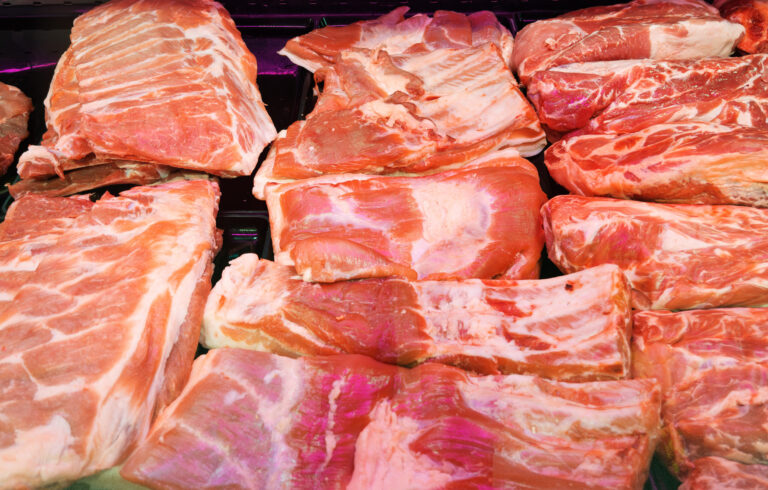5 Reasons Kobe Beef Price Is So High
Kobe beef’s high price reflects limited land for rearing, strict breeding protocols, intensive care, and exclusive certification, making it a culinary luxury.
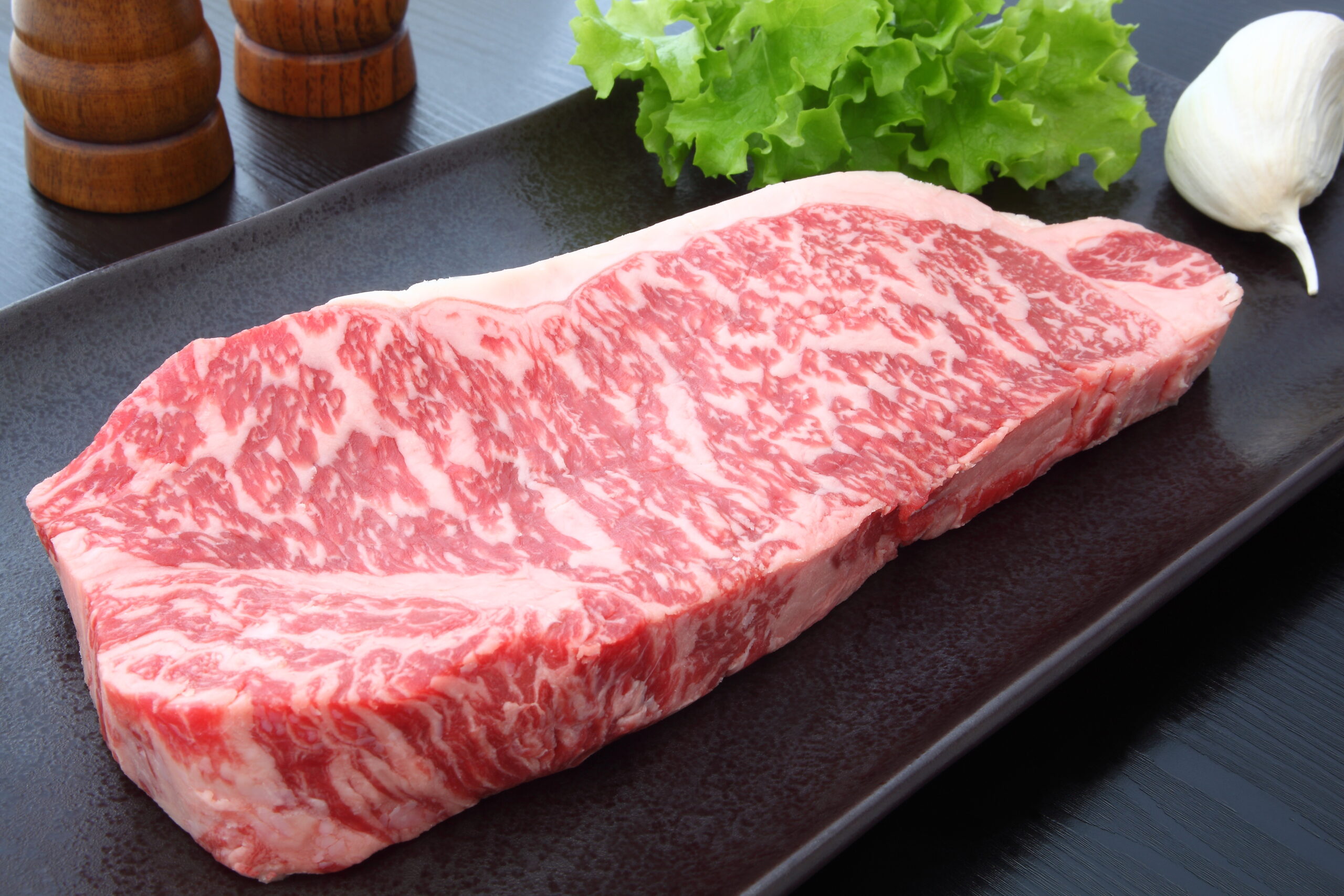
Have you ever pondered the lofty price tag attached to Kobe beef, often soaring beyond $200 for a single serving? This exceptional meat originates from the Tajima strain of Fullblood Japanese Black cattle, bred in Japan’s Hyogo Prefecture. Renowned as the epitome of culinary opulence, Kobe beef is a coveted delicacy cherished by chefs and epicureans globally.
Disclosure: As an Amazon Associate, this site earns from qualifying purchases. Thank you!
Exploring the High Cost of Kobe Beef
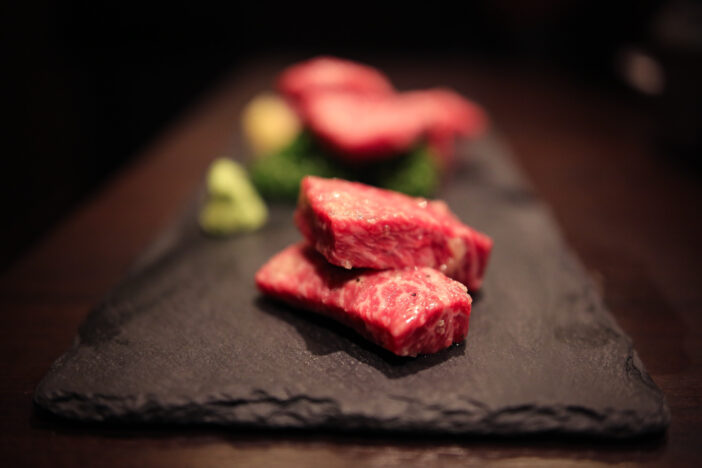
What makes Kobe beef so expensive? Beyond its exquisite taste, several factors contribute to its hefty price tag.
- Limited Land for Cattle Rearing in Japan: In Japan’s crowded landscape, cattle farms are scarce, particularly in Hyogo Prefecture where Kobe beef cattle are raised. This scarcity drives up land costs, limiting cattle numbers and raising rearing expenses.
- Stringent Breeding and Rearing Standards: Kobe beef must meet strict criteria, sourced only from Tajima Fullblood Japanese Black cattle, born and raised in Hyogo Prefecture. Each animal is meticulously tracked from birth to slaughter, adding to production costs.
- Intensive Feeding and Care: Kobe cattle live a life of luxury, with specialized diets, including beer, and regular massages to ensure top-quality meat. Such pampering demands extra resources and labor.
- Exclusive Certification and Traceability: Only certified Kobe beef carries the prestigious label, with each cut accompanied by a certificate featuring the cattle’s nose print. This rigorous process guarantees authenticity but also adds administrative layers and costs.
In sum, the premium price of Kobe beef reflects not just its taste but also the meticulous care, tradition, and strict standards that underpin its production, making it a culinary investment in excellence.
Comparing Kobe Beef with Other Types of Beef
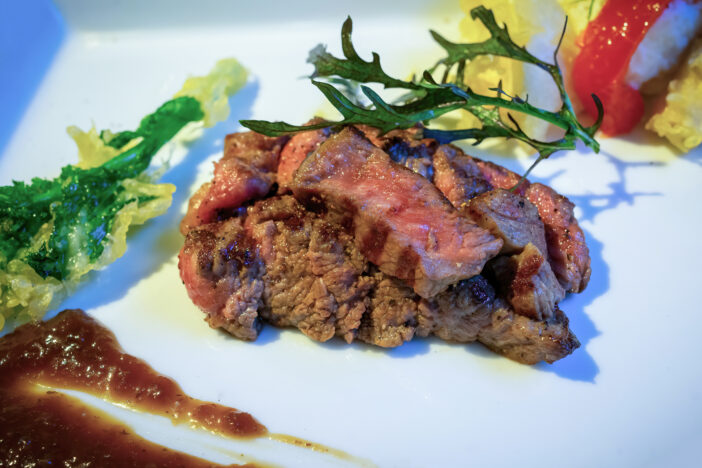
When embarking on a culinary exploration of beef, you’ll quickly discover that not all beef is created equal. Diving into the world of premium meats, let’s dissect how Kobe beef stands apart from its counterparts, such as American and Australian Wagyu, in terms of both price and quality.
Kobe Beef vs. American Wagyu
Kobe beef, hailing from Japan’s Hyogo prefecture, boasts luxurious marbling and texture. American Wagyu blends Japanese genetics with American breeds, offering similar quality at a lower cost. For instance, Arby’s $8 Wagyu Steakhouse Burger in 2022 highlighted this accessibility, albeit with some taste compromises, signaling the evolving Wagyu market in the US.
Kobe Beef vs. Australian Wagyu
Australian Wagyu, a notable alternative to Kobe beef, has gained prominence with vast ranches and adherence to Japanese grading standards. Despite its quality, Australian Wagyu is generally more affordable than Kobe beef due to larger-scale production and less stringent grading criteria.
Price and Quality Comparisons
Kobe beef’s rare production methods and specific lineage justify its high cost, often surpassing $200 per portion. American and Australian Wagyu, though pricey compared to regular beef, offer a more accessible taste of luxury due to broader availability and diverse breeding practices. However, Kobe beef’s unparalleled quality, rooted in centuries of Japanese tradition, sets it apart despite its premium price.
The Global Demand for Kobe Beef
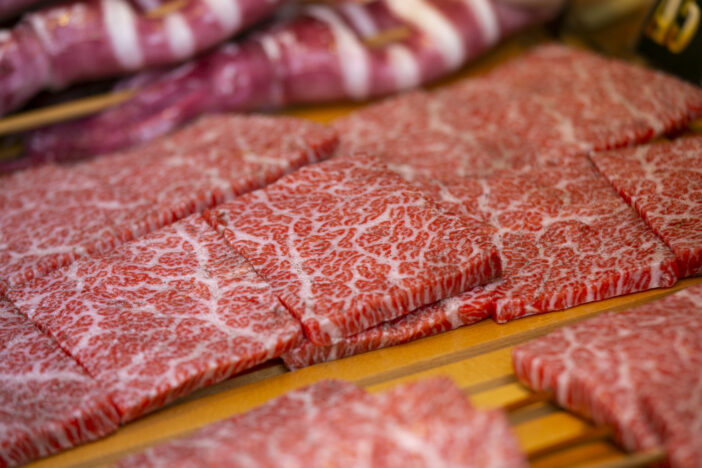
Kobe beef’s allure transcends geographic borders, captivating food enthusiasts worldwide. This global craze for Kobe beef is not just about the taste—it’s a testament to culinary prestige and rarity.
Popularity in Fine Dining
In fine dining circles, Kobe beef reigns supreme, symbolizing not just a dish but an unmatched culinary experience. Esteemed restaurants worldwide showcase Kobe beef as a centerpiece, renowned for its rich marbling and exquisite flavor. Celebrated by celebrity chefs and prestigious culinary awards, Kobe beef transforms ordinary dishes into luxurious gastronomic affairs. From perfectly cooked steaks to innovative fusion creations, Kobe beef captivates discerning diners with its unparalleled taste and allure.
Export Restrictions and Import Costs
Export restrictions and import costs play a significant role in the journey of Kobe beef from Japanese farms to international markets. Japan’s stringent export controls maintain the exclusivity of Kobe beef abroad, limiting its supply and driving up its price. Importing Kobe beef entails navigating tariffs, taxes, and logistical expenses, along with meeting local regulatory standards, further inflating its cost. As a result, the price of Kobe beef outside Japan reflects not just its quality but also the complexities of international trade and regulatory compliance.
The global demand for Kobe beef, fueled by its prestige in fine dining and the complexities of export and import logistics, solidifies its status as a highly coveted luxury food. Each serving of Kobe beef honors Japanese culinary tradition, expert craftsmanship, and the worldwide pursuit of culinary excellence.
Is Kobe Beef Worth the Price?
When you’re forking over a premium for Kobe beef, it’s natural to wonder if the purchase justifies the price. Let’s dive into what makes Kobe beef stand out, examining both its unique tasting experience and health implications to help you decide.
Culinary Experience and Flavor Profile
Kobe beef, originating from Japan’s Hyogo Prefecture, offers an unparalleled culinary experience with its exceptional flavor and texture. Meticulously raised Tajima-gyu cattle, fed a special diet including beer and sake mash, result in rich marbling and buttery tenderness. This unique care produces a flavor profile that’s intensely beefy yet subtly sweet, offering a rare complexity. Enjoying Kobe beef is more than a meal; it’s an unforgettable experience, showcasing the artistry of Japanese cuisine in every bite.
Health Benefits
Kobe beef offers more than just exceptional taste; it also boasts unique health benefits. High in monounsaturated fats like oleic acid, it’s believed to support heart health by lowering bad cholesterol levels. Additionally, it’s rich in essential nutrients like protein, iron, zinc, and B vitamins. However, its higher fat content calls for moderation, as excessive consumption can lead to unwanted saturated fats and calorie intake.
Ultimately, whether Kobe beef is worth the price hinges on valuing the exceptional culinary experience and the unique taste it offers. It’s an indulgence that, while perhaps not an everyday dietary staple, can provide a memorable and delicious experience for those special occasions, making it worth the investment for many.
Frequently Asked Questions
Which meat is better, wagyu or Kobe?
Kobe beef, hailing from Japan’s Hyogo Prefecture and adhering to higher standards, boasts a creamier flavor and unmatched tenderness, making it superior for many. Its strict quality requirements ensure Kobe beef is the pinnacle of culinary excellence.
What do they feed Kobe beef cattle?
Kobe beef cattle enjoy a diet of grains and grasses, supplemented with beer to promote weight gain and the marbling Kobe beef is renowned for. Stress-free living conditions and daily massages further enhance meat quality.
How old are cows for Kobe beef?
Kobe beef cattle are aged between 28 and 60 months. They must be born, raised, and processed in Hyogo Prefecture, Japan, and achieve a Meat Quality score of A or B, Yield Score of 4 or 5, and Beef Marbling Score (BMS) of 6 or higher.
How much does it cost to buy a Kobe cow?
Kobe beef, a type of Wagyu beef, is among the world’s most expensive meats, reflecting its luxurious marbling and delicate taste. Wagyu meat can cost up to $200 per pound, with cows possibly selling for up to $30,000 due to their high-quality meat.
What is the rarest steak?
The rarest steak is Olive wagyu, fetching over $500 a pound, making it one of the priciest meats available. Unique to Shōdoshima, Japan, Olive wagyu results from feeding cattle by-products from local olive oil production, contributing to its scarcity and exclusivity.



